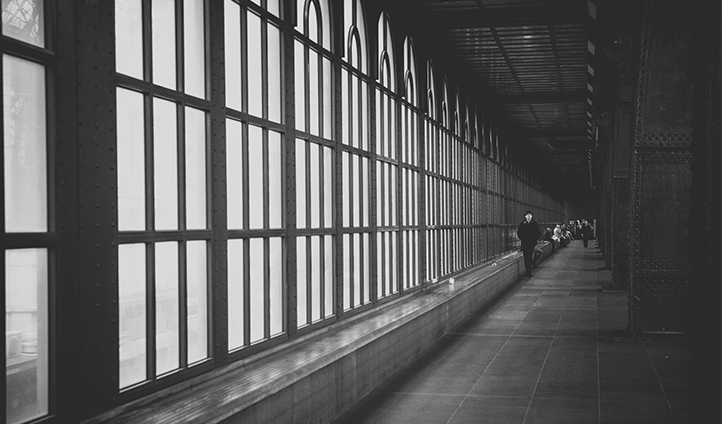Everson v Board of Education Applied Establishment Clause to States
Historical
In Everson v Board of Education of the Township of Ewing, 330 U.S. 1 (1947), the U.S. Supreme Court held that a New Jersey law that reimbursed parents for school transportation costs whether they attended public or parochial schools did not violate the Establishment Clause. Nonetheless, the landmark First Amendment decision is credited with solidifying the strict separation between church and state.
Facts of Everson v Board of Education
A New Jersey statute authorized local school districts to make rules and contracts for the transportation of children to and from schools. The Board of Education of the Township of Ewing, acting pursuant to this statute, authorized the reimbursement to parents of money expended by them for the bus transportation of their children on regular busses operated by the public transportation system. Part of this money was used to pay for the transportation of some children in the community to Catholic parochial schools.
A district taxpayer filed suit in a state court challenging the right of the board of education to reimburse parents of parochial school students. He alleged that the statute and the township resolution violated the First Amendment because it forced residents to pay taxes to help support and maintain Catholic schools. The First Amendment’s Establishment Clause provides that the government “shall make no law respecting an establishment of religion, or prohibiting the free exercise thereof…” The prohibition was extended to the states via the Fourteenth Amendment.
Majority Decision in Everson v Board of Education
By a vote of 5-4, the Court held that the New Jersey law did not violate the Establishment Clause. Justice Hugo Black authored the majority opinion.
In reaching its decision, the Court established a sweeping view of the Establishment Clause, as it applies to both the states and the federal government. In his opinion, Justice Black discussed the Framers’ intent in drafting the clause, concluding that it favored a broad interpretation. He wrote:
The ‘establishment of religion’ clause of the First Amendment means at least this: Neither a state nor the Federal Government can set up a church. Neither can pass laws which aid one religion, aid all religions, or prefer one religion over another. Neither can force nor influence a person to go to or to remain away from church against his will or force him to profess a belief or disbelief in any religion. No person can be punished for entertaining or professing religious beliefs or disbeliefs, for church attendance or non-attendance. No tax in any amount, large or small, can be levied to support any religious activities or institutions, whatever they may be called, or whatever form they may adopt to teach or practice religion. Neither a state nor the Federal Government can, openly or secretly, participate in the affairs of any religious organizations or groups and vice versa. In the words of Jefferson, the clause against establishment of religion by law was intended to erect ‘a wall of separation between church and State.’
In this case, the majority concluded that the statute was permissible because the transportation reimbursements were provided to all students regardless of religion. The majority also noted that the money was provided directly to parents and not to any religious institution.
The Dissent in Everson v Board of Education
The dissenting justices — Wiley Rutledge, Felix Frankfurter, Robert Jackson, and Harold Burton — agreed with the majority’s interpretation of the Establishment Clause. However, they also believed that the law was unconstitutional. “The prohibition broadly forbids state support, financial or other, of religion in any guise, form or degree. It outlaws all use of public funds for religious purposes,” Justice Rutledge wrote.
Previous Articles
SCOTUS Wraps Up Oral Arguments for the Term
by DONALD SCARINCI on May 17, 2022
The U.S. Supreme Court has concluded its oral arguments for the October 2021 Term. The justices hea...
SCOTUS Rules Censure of Elected Board Member Didn’t Violate First Amendment
by DONALD SCARINCI on May 10, 2022
In Houston Community College System v. Wilson, 595 U.S. ____ (2022), the U.S. Supreme Court held th...
Supreme Court Breach Is Not the First Involving Roe v. Wade
by DONALD SCARINCI on
The recent disclosure of Justice Samuel Alito’s decision purporting to overturn Roe v. Wade is ar...
The Amendments
-
Amendment1
- Establishment ClauseFree Exercise Clause
- Freedom of Speech
- Freedoms of Press
- Freedom of Assembly, and Petitition
-
Amendment2
- The Right to Bear Arms
-
Amendment4
- Unreasonable Searches and Seizures
-
Amendment5
- Due Process
- Eminent Domain
- Rights of Criminal Defendants
Preamble to the Bill of Rights
Congress of the United States begun and held at the City of New-York, on Wednesday the fourth of March, one thousand seven hundred and eighty nine.
THE Conventions of a number of the States, having at the time of their adopting the Constitution, expressed a desire, in order to prevent misconstruction or abuse of its powers, that further declaratory and restrictive clauses should be added: And as extending the ground of public confidence in the Government, will best ensure the beneficent ends of its institution.




